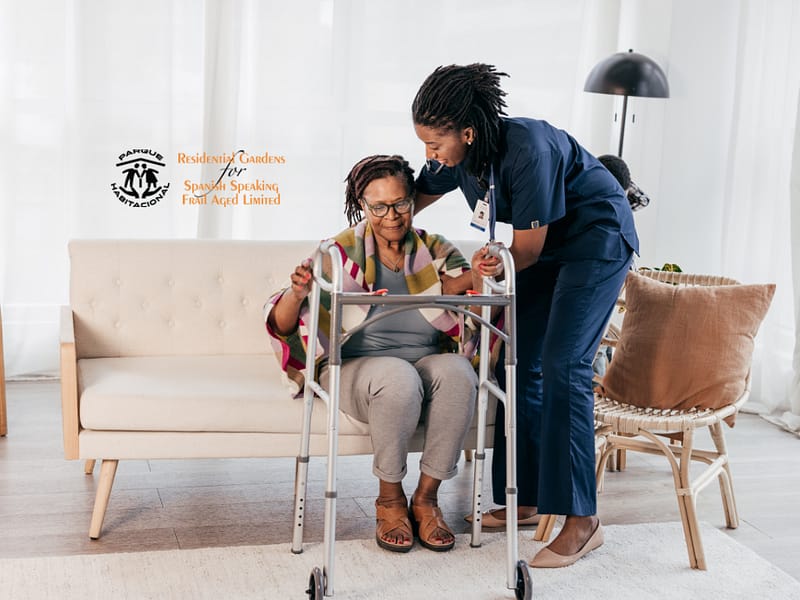When families begin exploring aged care options, understanding the difference between high care and low care is the first step toward making the right decision. Both levels of support fall under Age Care, but they are designed for people with very different needs.
What Does High Care Mean?
High care is designed for older adults who need more hands-on support every day. This includes help with bathing, dressing, eating, and managing medication. In many cases, high care also includes 24-hour supervision, nursing assistance, and access to medical professionals. It’s best suited for seniors with complex health conditions or limited mobility who require constant attention and safety monitoring.
When Is Low Care the Right Option?
Low care, on the other hand, is for older individuals who still enjoy a degree of independence but need occasional help. This might include assistance with meal preparation, light cleaning, or transportation. Residents in low care settings often live more freely and may not need round-the-clock supervision.
Many families start with low care and move to high care as their loved one’s needs increase over time. This gradual transition allows seniors to stay comfortable and supported as their situation changes.
Families unsure about which option to choose can begin by speaking with an Age Care provider. These professionals can assess the individual’s needs and recommend whether residential aged care or another form of support will provide the best balance between comfort and independence.
Signs That Your Loved One May Need More Support
Recognising when your loved one needs high care isn’t always easy. Many families notice small changes at first — like forgetfulness, slower movements, or less interest in social activities. Over time, these signs can become more noticeable and indicate that professional help may be needed.
Physical Signs That Indicate the Need for High Care
If your loved one is struggling with daily activities such as bathing, dressing, or walking, it might be time to consider high care. Other red flags include frequent falls, visible fatigue, or sudden weight loss. Seniors who forget to take medication or eat regularly may also be at risk.
When physical weakness affects safety and comfort, it’s important to step in early. Moving into a supportive residential aged care setting can make life easier and safer, ensuring they get proper care when needed.
Emotional and Behavioural Signs to Watch For
Emotional well-being is just as important as physical health. If your loved one feels lonely, anxious, or confused, it may be a sign they need more attention and companionship. In some cases, memory loss or mood swings could signal conditions like dementia that require closer care.
Family members often feel unsure about when to act, but observing these gradual changes over weeks or months helps. Transitioning to high care isn’t about losing independence — it’s about gaining peace of mind and ensuring safety, comfort, and dignity every day.
How Age Care Assessments Help Determine the Right Level of Support
Deciding between high care and low care can feel overwhelming, but the good news is that families don’t have to figure it out alone. An Age Care assessment is designed to make the process clear and personalised.
What Happens During an Age Care Assessment?
Professionals assess physical, emotional, and cognitive health to determine which level of support suits the person best. They look at mobility, memory, and how well daily tasks can be managed independently. Based on the results, they’ll recommend high care, low care, or another service.
Assessments can be arranged through government programs or an aged care nursing home sydney facility. The process is supportive, not stressful — the goal is to help families find a care plan that truly fits their loved one’s lifestyle and health needs.
Why Professional Guidance Matters
Many families are unsure when it’s time to move from low care to high care, and that’s where experts can help. Age Care professionals are trained to identify early signs of decline that families might overlook. They can also explain funding options, transition steps, and facility choices across residential aged care sydney locations.
When Daily Tasks Become Too Difficult to Manage Alone
As loved ones age, small daily tasks can slowly become harder to handle. What once felt simple — like cooking, cleaning, or taking a shower — might now seem exhausting or even risky. When this happens, it’s often a sign that high care may be the best option.
Recognising Daily Challenges at Home
Tasks such as bathing, dressing, or remembering to take medication can become overwhelming. Some older adults might skip meals, wear the same clothes for days, or struggle to move safely around the house. These are early signs that independent living is no longer safe or comfortable.
Families often notice that their loved one is tired more often, takes longer to recover from small illnesses, or has difficulty keeping up with appointments and bills. These are all signals that a higher level of care might be needed soon.
How Residential Aged Care Makes a Difference
Moving into a residential aged care setting can provide the structure and support that home life sometimes can’t. In a high care environment, professional staff assist with meals, hygiene, mobility, and medical needs every day. They also ensure medication is taken correctly and that residents stay socially active.
The goal isn’t to take away independence — it’s to improve quality of life. With the right care team, older adults can stay comfortable, healthy, and connected, while families gain peace of mind knowing their loved ones are safe.
The Role of Residential Aged Care Sydney in Providing 24/7 Support
When care at home is no longer enough, residential aged care sydney becomes the next step. These facilities offer full-time assistance, professional supervision, and emotional support tailored to each resident’s unique needs.
Why 24/7 Care Matters
In a high care setting, trained staff are available at all hours to handle medical needs, personal care, and emergencies. This round-the-clock attention helps prevent falls, manage chronic conditions, and provide quick responses during health issues.
Aged care nursing home sydney services are designed to make residents feel safe and valued. They focus on maintaining dignity, promoting social connection, and creating a comfortable living environment.
Residential Gardens: A Trusted Name in Aged Care
Families looking for a compassionate, professional facility can turn to Residential Gardens, a respected residential aged care and aged care nursing home sydney provider. They offer a full range of services including aged care, respite care, home care, and residential care — ensuring every stage of support is covered.
At Residential Gardens, care plans are personalised to match each resident’s medical and emotional needs. Their experienced team provides 24-hour assistance while encouraging independence and community involvement. It’s a welcoming place where seniors can enjoy comfort, security, and companionship.
Emotional Considerations When Transitioning to High Care
Moving into high care can be a big emotional change — not only for the person entering care but also for their family. It’s normal to feel worried or uncertain about what comes next, but with the right approach, the transition can be smooth and positive.
Helping Loved Ones Adjust Emotionally
Start by involving your loved one in every decision. Talk openly about their preferences, concerns, and expectations. Visiting potential residential aged care facilities together also helps reduce anxiety and gives them a sense of control.
Maintaining regular visits, calls, or shared activities after the move helps ease feelings of loneliness or fear. Most facilities encourage families to stay closely connected through events and visits, which helps new residents settle in faster.
Finding Comfort in Professional Support
Remember, moving into high care isn’t just about medical attention — it’s about companionship, social interaction, and emotional well-being. Staff are trained to provide not only physical help but also encouragement and emotional care.
Taking the Next Step Toward the Right Care Choice
Choosing between low care and high care can feel overwhelming, but taking it one step at a time helps. The goal is to ensure your loved one gets the right balance of support and independence for their needs.
How to Begin the Journey
Start by scheduling an Age Care assessment to understand what level of support is required. Visit local residential aged care sydney facilities and ask questions about services, costs, and daily routines. Take note of how staff interact with residents — this can tell you a lot about the care environment.
Compare low care and high care options carefully, focusing on what will make your loved one feel most comfortable and secure. If possible, involve them in the process so they feel confident and respected.
Making a Confident Decision
Transitioning to high care is not just a medical decision — it’s an act of love and responsibility. It ensures your loved one has access to safety, comfort, and emotional connection every day.
Whether you’re exploring aged care nursing home sydney facilities or in-home support, remember that choosing professional care provides peace of mind. With compassionate providers like Residential Gardens, you can rest assured that your loved one is receiving the best care possible — delivered with respect, kindness, and understanding.








